
NK-CELL ACTIVITY TEST
WHAT ARE NK IMMUNE CELLS?
NK cells (natural killer cells), also known as natural killer cells, are lymphocytes that originate in the bone marrow. NK cells play an important role in the immune response to virus-infected cells, resistance to tumor formation, as well as play an important role in embryo implantation.
NK cells are considered "warriors" with the function of checking and destroying abnormal cells of the body such as cancer cells, virus-infected cells and other foreign cells, including embryos. or the fetus is sometimes "wrongly" aborted.
=> Therefore, NK cell activity is related to general body health and the body's ability to fight cancer, viruses/bacteria, foreign cells. NK cell activity has also been shown to be directly related to recurrent miscarriage and IVF success rates.
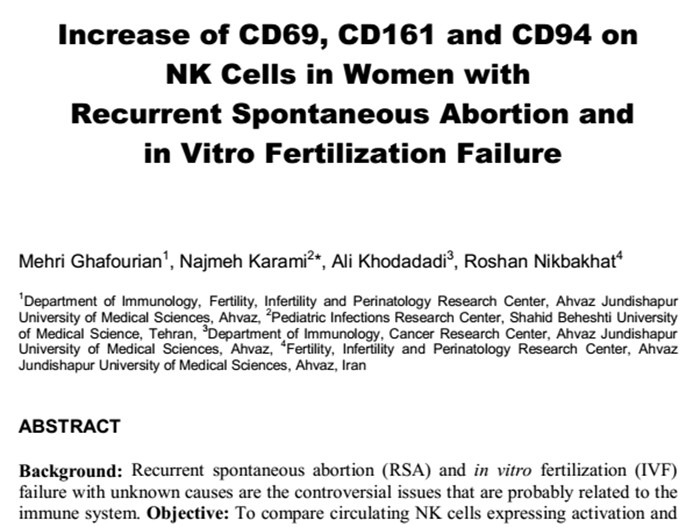
Research shows that: In women with recurrent miscarriage and IVF failure, there is an increase in CD69, CD161, CD94 in NK cells.
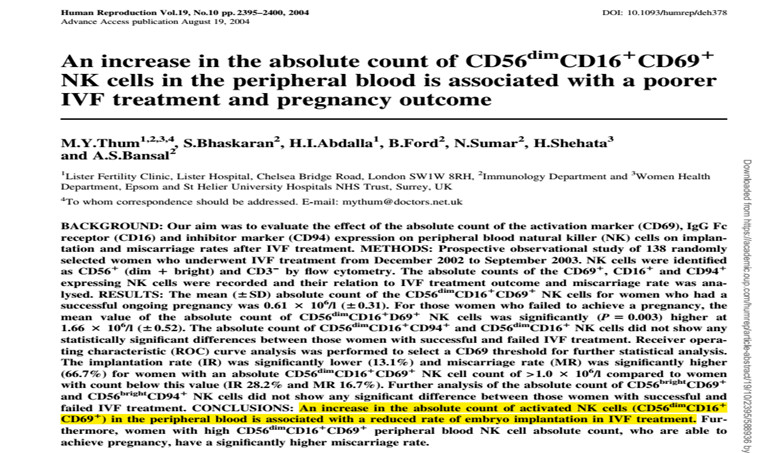
Research shows that: Increasing the number of activated NK cells (CD56dimCD16+CD69+) in the blood is associated with a reduced IVF success rate.
WHAT IS NK CELL ACTIVITY TEST?
As a test to evaluate NK cell activity, it helps to evaluate immunological abnormalities that cause repeated miscarriages and repeated IVF failures of unknown cause; At the same time, it is also a screening tool, supporting early diagnosis and coordinating cancer treatment for patients with cancer or at high risk for cancer.
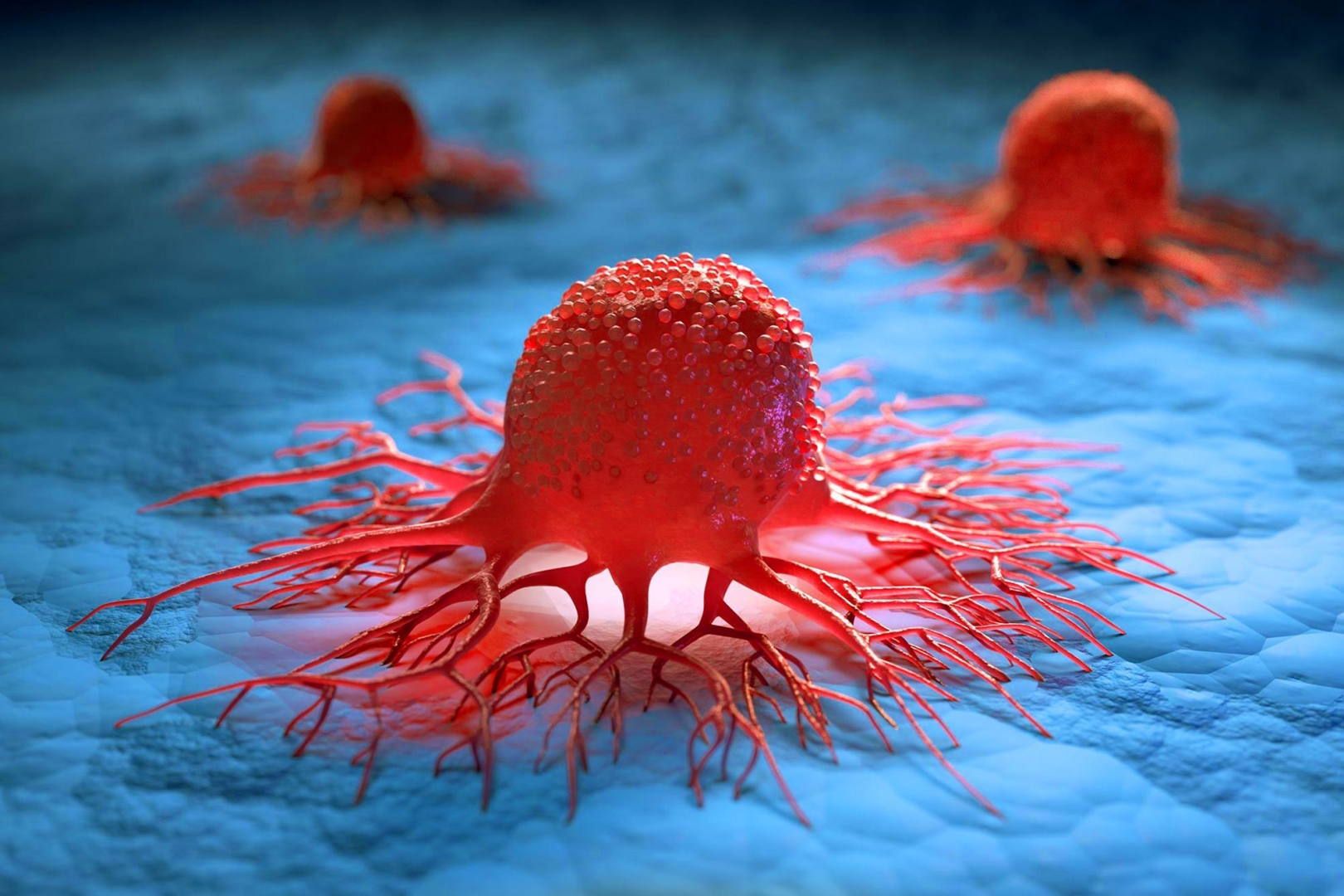
IMPORTANCE OF NK CELL ACTIVITY TEST
FOR Gynecology:
+ Assist doctors in assessing immunological abnormalities that cause repeated miscarriages and unexplained IVF failures; Find out the cause of recurrent miscarriage, failed embryo transfer, timely treatment, increase the rate of embryo transfer and successful pregnancy
Elevated numbers and activities of NK cells lead to increased secretion of toxicity, unregulation of local immunity, embryo rejection, and endometrial degeneration.
In contrast, the deficiency of NK cells, the immune cells function poorly, do not secrete angiogenic cytokines leading to failure to accept and adhere to the embryo in the uterus.
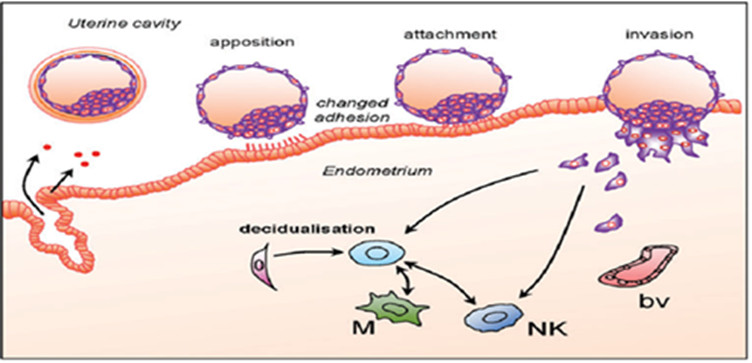
FOR CANCER:
+ Patients with cancer: help doctors monitor the effectiveness of cancer treatments.
Comparing the NK cell activity before and after treatment, if the activity is increased, it shows that the immune system is improving well, and the body is responding effectively to the therapy. When low activity is an indicator that the immune system has not been restored, patients need to be closely monitored for disease progression for more effective treatment, especially prevention of metastasis.
+ People at high risk of cancer: helping to screen and diagnose cancer-causing factors early in people with family members with cancer, working in toxic, dusty environments, stressful jobs prolonged stress (stress), unhealthy living habits (alcohol, tobacco, high protein, high sugar, ...)
+ Screening for healthy people: support to find the cause when NK cell activity suddenly changes at a certain time, detect cancer early, treat promptly and reduce cancer mortality rate .
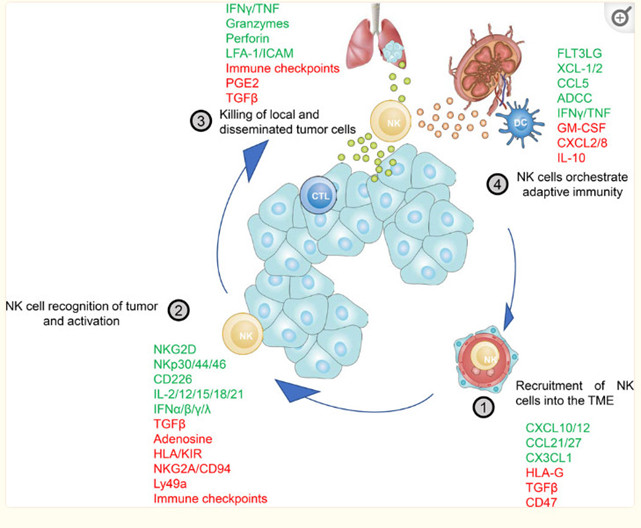
=> NK cell activity test has been researched and has become an early screening tool for Cancer in countries with developed medical background such as: USA, Canada, Japan, Korea, Singapore, Thailand.
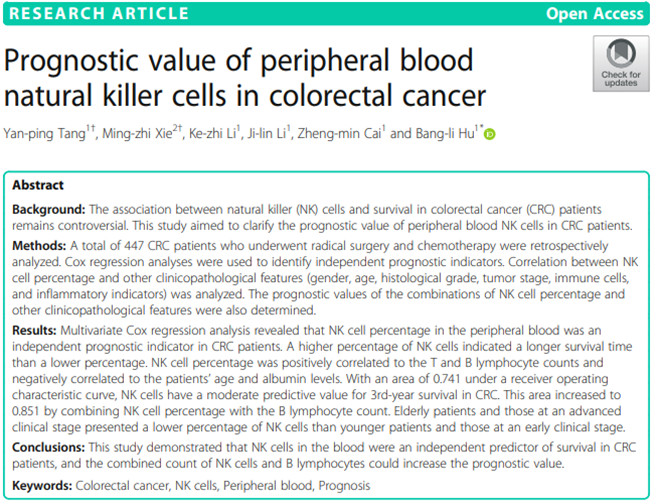
A study on 447 colorectal cancer patients after surgery and chemotherapy concluded that the amount of NK in the blood is a predictor of patient survival.
Tài liệu tham khảo: Tang, Yp., Xie, Mz., Li, Kz. et al. Prognostic value of peripheral blood natural killer cells in colorectal cancer. BMC Gastroenterol 20, 31 (2020). https://doi.org/10.1186/s12876-020-1177-8
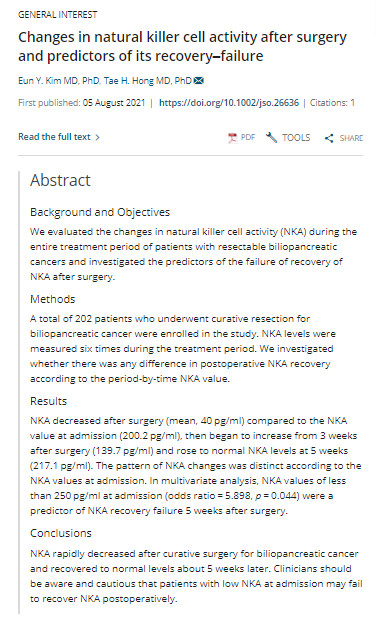
NK activity values decreased after pancreatic cancer patients underwent surgical resection and after 5 weeks increased to normal levels. The study showed that the NK activity value measured at hospital admission has the ability to predict the ability to recover NK cells after surgery.
Eun Y. Kim MD, PhD,Tae H. Hong MD, PhD https://doi.org/10.1002/jso.26636
SUBJECTS SHOULD TEST FOR NK CELL ACTIVITY
- Obstetrics: Women with a history of repeated miscarriages or repeated IVF failures with no known cause
- Cancer:
- The patient is suffering from cancer
- People at high risk of cancer: having a family member with cancer, working in a toxic environment, smog, prolonged stressful work (stress), unhealthy living habits (alcohol, alcohol, etc.) smoking, eating a lot of protein, a lot of sugar,...)
- Health care: Person who performs annual health care
NK CELL ACTIVITY TEST AT GENTIS
TEST METHODS:
NK cells are artificially activated by PROMOCA, then the amount of IFN-γ secreted is quantified by ELISA reaction thereby reflecting the NK cell activity.

TESTING PROCESS IN GENTIS
Step 1: Sampling
- Record patient information, date and time of blood collection on the NK tube, in the patient monitoring information book for testing.
- Garo vein and take blood from the patient with a sterile butterfly needle, the amount of blood is equal to 1mL/patient into the NK test tube (according to the line displayed on the NK tube)
- Shake the NK tube gently to mix the contents of the tube with the patient's blood
- Place the NK tube in the test tube rack so that the cap of the NK tube is facing up
- Put the NK tube in the incubator (37 degrees Celsius) right after taking blood (do not leave it out for more than 15 minutes).
Step 2: Sample handling and preservation
- After the incubation period of 20-24 hours, prepare samples and send them to the laboratory
- Do not open the cap of the NK Vue tube, keep the sample tube in the refrigerator until it is delivered to the laboratory at 2-8 degrees Celsius (up to 3 days).
- Or carefully collect the transferred plasma into a 1.5ml centrifuge tube. The sample can be transported immediately (2°C to 8°C) to the laboratory for analysis. Or refrigerated at 2°C. C to 8 degrees C (for up to 3 days) or frozen at - 20 degrees C (For up to 3 months) until delivered to the laboratory
Note : Shipping after collecting samples from patients : samples MUST be placed in a shipping box (37 degrees C) before being sent to a facility with a dedicated 37 degrees C incubator.
Step 3: Analyze samples at GENTIS . laboratory
Step 4: Return the result
- Time to return results from 4-6 days (Except Saturday - Sunday).
Please fill in the information below to receive our supports and consultations!







